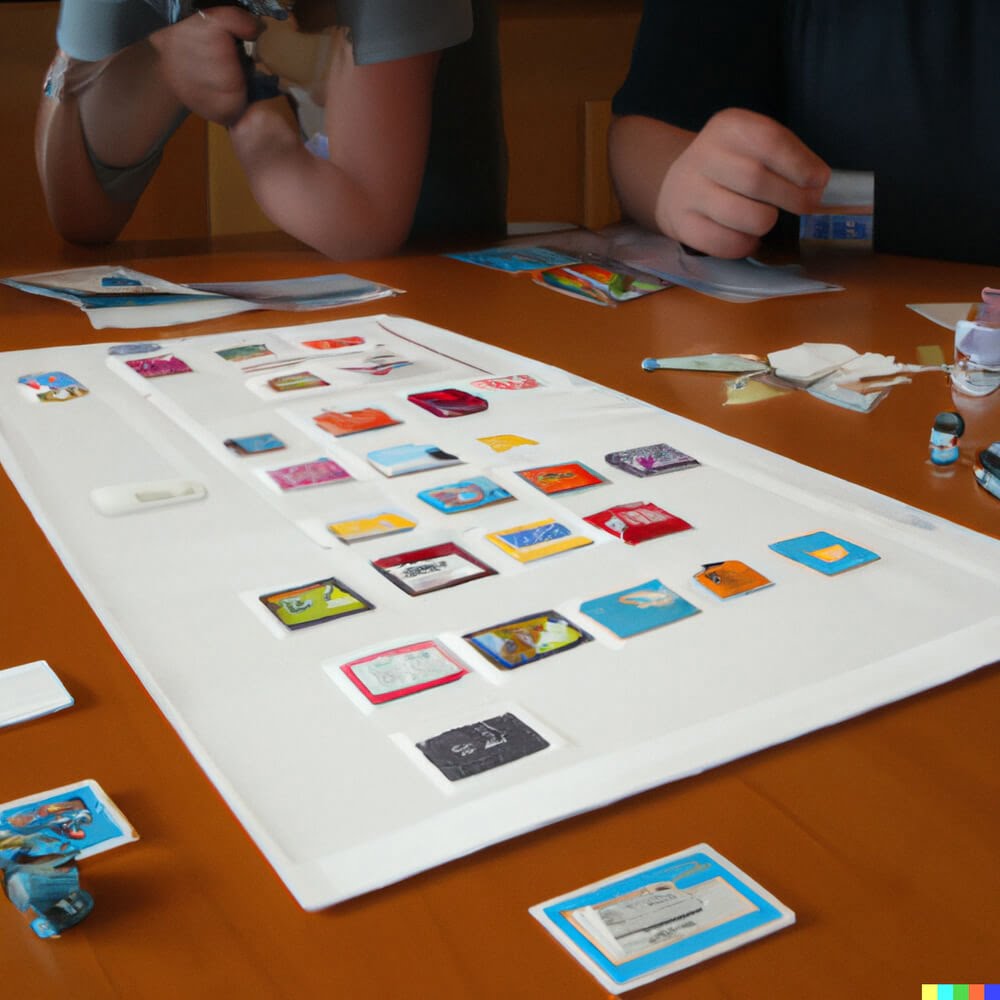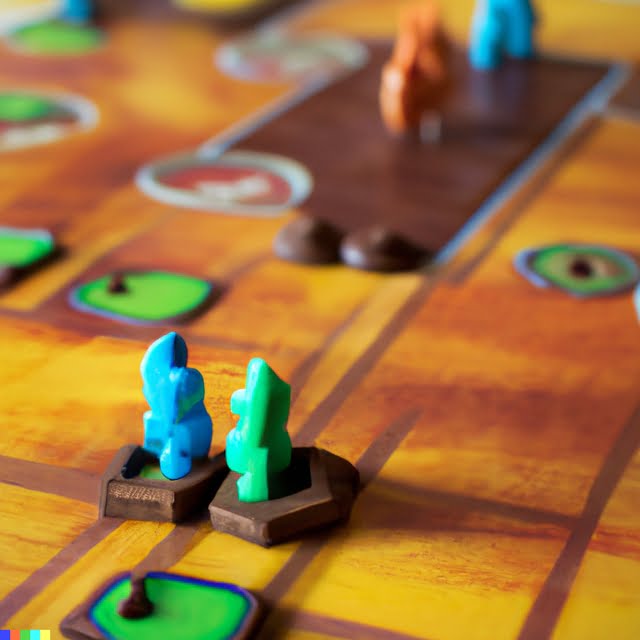Introduction
Starting your own board game store can be a rewarding and profitable venture. Not only will you have the opportunity to create a safe and welcoming space for gamers, but you will also benefit from having a variety of board games to offer customers. With people spending more time at home due to pandemics or other reasons, having access to a good selection of board games can become even more important as people look for ways to entertain themselves and friends while remaining safe. Additionally, opening up your own store gives you the opportunity to participate directly in the gaming community, host game nights and events, and form relationships with like-minded gamers. Starting up your store is not without its challenges – you’ll need to make sure you have enough funds available and that your chosen inventory is in high demand – but it’s undoubtedly worth pursuing as an alternative entrepreneurial venture.
Deciding the Scope of Your Store
When it comes to starting your own board game store, there are several different types of stores you could go for. The most popular type is a full-fledged retail store, where customers can come in and browse through games and accessories before making a purchase. However, some entrepreneurs opt to go the route of an online store, offering board games for sale on their website or mobile app without having any physical presence. Other possible approaches include popups or even special themed nights at local venues, like bowling alleys or bars – these businesses might only offer certain types of events that revolve around playing classic board games like Monopoly or Chess. Whatever path you decide to pursue, it’s important to have a clear vision regarding the scope of your store and what kind of services or gaming opportunities it will provide its customers. This will help ensure that you have the right setup in place so that your business is successful in the long run.
Securing the Necessary Permits and Licenses
If you are planning to start a board game store, then it is important to ensure you have secured the necessary permits and licenses before launching your business. Depending on where your store will be located, different governing laws may apply. To get started on understanding the applicable regulations for your area, you should check with local, regional, state and federal authorities for any relevant legislation covering the sale of board games.
For instance, there may be restrictions or limitations placed on the kind of products you can stock in your store. You will likely need a city retail permit if you plan on selling items within a specific administrative district. You may also need to obtain an added license or permit from the Alcoholic Beverage Control Board if any of the board game titles being sold in your store contain alcohol-related themes or references.
To comply with state and federal labor laws, it is important to make sure that any employees working in your store are properly trained and certified in handling cash transactions and using specialized equipment such as point-of-sale systems. Additionally, consider how online sales might work – you will need fees to cover taxes and possible shipping expenses if any customers purchase their orders remotely. Moreover, depending on what other services (e.g., gaming events) you intend to provide at your business venture, separate insurance coverage might also be required for added protection against accidental losses or injuries sustained by customers within your premises.
Selecting the Right Location
The success of your board game store will largely depend on its geographical location. A great spot would be in a city or neighborhood that is conducive to the target demographic of customers who like to play and purchase board games. It should be situated close to other small businesses or within an area that has plenty of foot traffic. You should also consider the rent cost for the space; if it’s too high, it could eat away at profits so make sure you find a moderately priced spot with low overhead expenses. In addition, check out any restrictions on signage and noise levels as some business districts may have limitations. After doing all of your research, make sure you’re comfortable with the conditions before signing a lease agreement.
Establishing a Clear Business Plan and Budget
Beginning a board game store requires substantial planning and investment. An in-depth business plan detailing the objectives, strategies, and budget needed to be successful is essential. The financial goals of the business need to be realistic and attainable with minimal risk. Start by drafting a list of your projected costs including rent, operational expenses, staff, inventory, insurance, marketing costs and any other miscellaneous fees. Researching local competitors will help you better understand the industry’s pricing to ensure you are offering competitive pricing for your products. Not only should your budget cover one-time costs but also provide enough funds to cover ongoing costs including payroll, payments on loan interest and monthly utilities. Establish a timeline for when you want all of the prerequisites met along with estimated launch dates. Once you have more accuracy in scheduling milestones and budget goals it will be easier to look for ways that create profit over time.
Planning the Store Layout, Design and Fixtures
Starting your own board game store can be a daunting task, but it doesn’t have to be. Planning the store layout and design, as well as ordering all the necessary fixtures, can be an exciting project that yields a unique shopping experience for your customers. Given the variety of board games available, it’s important to provide customers with an easy way to see all the games and their features. Utilizing custom-built shelving allows you to categorize games based on age range, style of gameplay or special features. Instead of traditional poster signs, consider using art pieces to advertise deals and discounts so that your store stands out from competitors and entices more customers.
Purchasing attractive fixtures like tabletop displays provides an extra layer of organization for customers. This also adds to the aesthetic of the store and helps small products stand out in a bigger space. Reclaimed wood or fabric accents gives off a homey feel for those wanting a cozy shopping experience. Adding comfortable seating areas with coffee tables, beanbags, or couches will give kids (and grown ups) the feeling of playing in someone’s living room – making it more likely that they’d purchase the game then and there. Offer creative solutions like these combined with other special touches like free magazines or snacks help make your store one of a kind – providing something both new and familiar to customers while they shop!
Choosing a Reliable Point-of-Sale System
When starting a board game store, choosing a reliable point-of-sale system is essential to running your business effectively. The right point-of-sale system will not only allow you to efficiently process payments and track inventory but also help you develop more meaningful relationships with your customers. When selecting a POS system for your board game store, here are some features you should look for:
• Compatibility with Payment Gateways and Credit Card Processors: Many point-of-sale systems work seamlessly with payment gateways like PayPal, Stripe, and Authorize.net to process credit cards quickly and securely. Ensure that your POS has the necessary integration capability with these companies so you can charge customers swiftly without having to wait for manual processing.
• Inventory Management Software: An advantage of an integrated inventory management system in a POS is its ability to keep track of all products under one unified dashboard – allowing you to easily adjust inventory levels as needed and organize stock items into separate sections like new arrivals or clearance sales. It also provides barcode scanning capabilities which can dramatically reduce product search times while checking out customers.
• Customer Relationship Management (CRM): With the right POS software, you can create profiles on customers who have purchased from your store before; keeping track of purchase history helps build relationships between your customers and staff as well as make recommendations based on past purchases whenever they visit again. You can also use CRM data pools to send promotional material via email or postal mail to bring returning clients back in the door!
Shopping for Inventory
Shopping for inventory is the most crucial step in starting your own board game store. It is important to have a good mix of both classic and newer games to ensure you are catering to all customers. If you focus too heavily on just one type, it may be counter-productive since you could fail to attract others. It’s wise to find out what types of games customers prefer in your area before making your purchase decisions.
Additionally, reach out to local gaming stores or conventions and ask how they stock their shelves. Proprietors of those operations should be able to give advice on the right combination of board games based on experience and customer surveys.
Researching new releases is also smart when shopping for inventory. Subscribing yourself or even employees to hobby magazines like Board Game Geek would be helpful in keeping up with the current trends among popular titles so that you can stay ahead of the curve when buying items for your own store shelves.
Promoting Your Store
When you own and operate a board game store, it is important to promote your store in order to reach the right audience. One of the best strategies for marketing a board game store is leveraging social media platforms. With social media, you can create appealing visuals highlighting items that are currently in-stock, as well as upcoming releases. Additionally, consider leveraging influencers within the gaming community to draw attention to your brand. In order to raise awareness about your store that appeals to enthusiastic gamers, you should also consider participating in local events such as tournaments or conventions that relate to gaming activity. This will help set your store apart and give potential customers an inside-look at what makes your establishment unique and exciting. Other strategies include offering discounts on certain games or select merchandise, running programs like loyalty rewards or special discount days for people who visit on certain dates, and creating content related to board games that draws an audience from search engine results. By creatively executing an effective strategy for promoting your board game store, you can create loyal fans who will be excited about returning for new products and experiences in the future.
Finding and Retaining Customers
One of the best ways to find and retain customers for your board game store is to start offering loyalty programs that reward customers. This could take many forms, such as a point-based system in which they earn points every time they purchase something from the store, or more customized loyalty program tiers that have unique rewards when they reach different spending milestones. For example, you can offer something like a bronze tier with 15% off of their next purchase when they hit $50 in spending, and then scale up with silver/gold/platinum tiers that have progressively larger discounts available. You can also use these tiers to offer exclusive items for sale or limited-time events that are only offered to members of certain loyalty levels. It’s important to advertise prominently in your store and around the neighborhood so customers are aware of your loyalty program and its benefits – this will encourage them to come back often and stay loyal customers!
Moving Forward
It is essential for a successful board game store to stay up-to-date on relevant technology and trends. As with any business, the risk of becoming obsolete is ever present. There are several ways to keep up with the changing landscape of board game stores.
One way would be to monitor research publications and other news related to board games and their respective industries. Staying current on emerging technologies, new products, regulations, legislation, and industry trends can give the store a competitive edge when it comes to delivering the latest offerings. Additionally, networking opportunities such as attending trade shows or joining local industry groups allow the store to stay ahead of the curve.
In addition, building a strong online presence is key for most businesses these days. Investing in digital marketing such as pay-per-click ads and social media can help increase visibility by reaching a larger portion of potential customers who shop online or use mobile devices while searching. Having a website is also essential to communicate information about product packages and promotional offers that might not be available in physical locations. Keeping up with trends on platforms like YouTube or Twitch by teaming up with influential gamers or creating original streaming content can further increase engagement with customers online.
Conclusion
Congratulations! By now, you have completed all the necessary steps to start your own board game store. You have gathered all of the equipment and supplies that you need. You have also researched board games and other gaming products to better understand what type of customers your store will attract and what kind of selection your business should offer. You should have already considered ways to market your store and create a lasting impression with potential customers. Finally, it is time for you to obtain any required permits or licenses for your business and officially open the doors of your new store. Now it is time for you to share the board game experience with others!

I love playing all kinds of games – from classics like Monopoly to modern favourites like Ticket to Ride.
I created this blog as a way to share my love of board games with others, and provide information on the latest releases and news in the industry.





